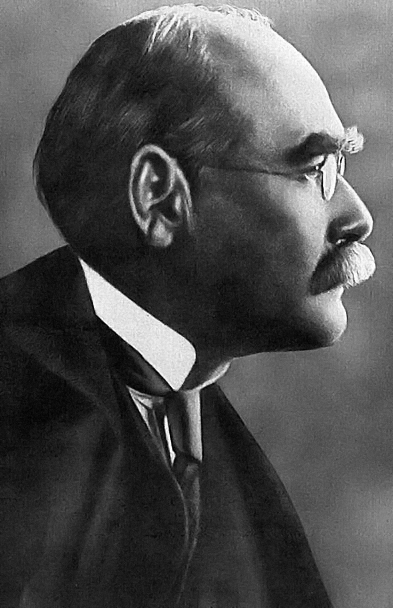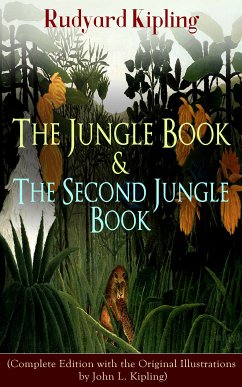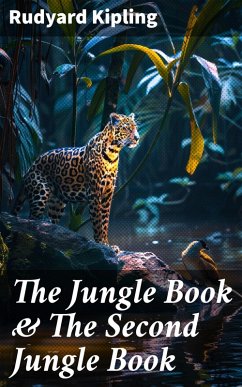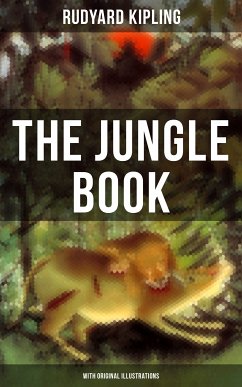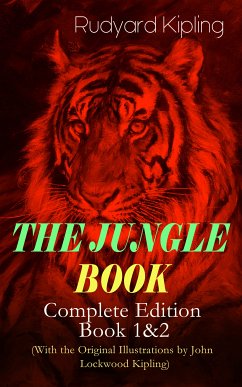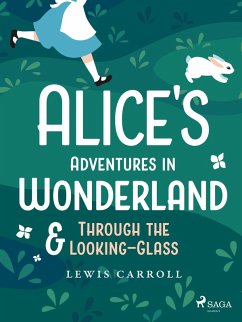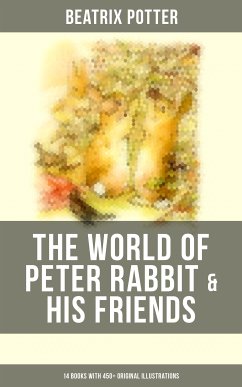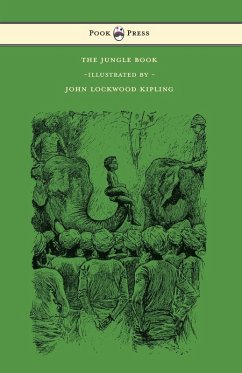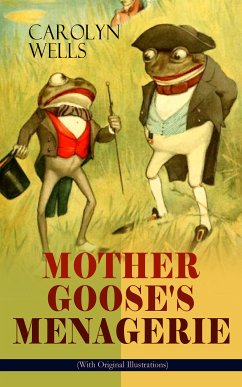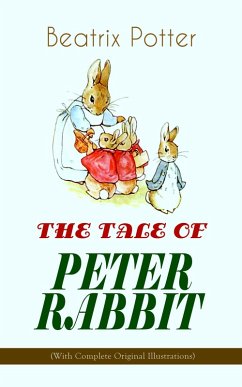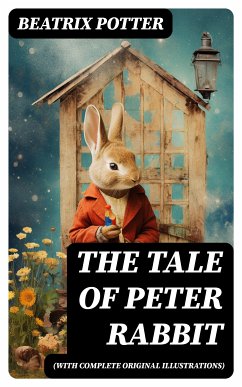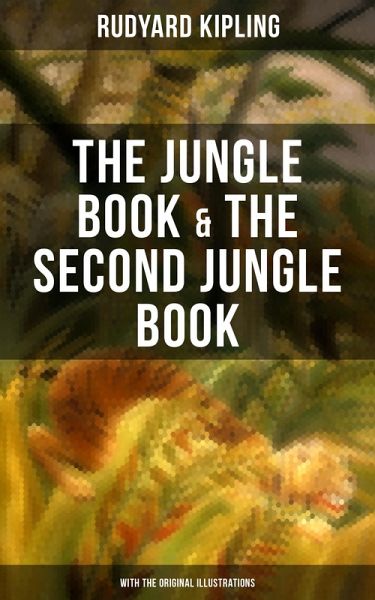
The Jungle Book & The Second Jungle Book (With the Original Illustrations) (eBook, ePUB)

PAYBACK Punkte
0 °P sammeln!
Rudyard Kipling's 'The Jungle Book & The Second Jungle Book (With the Original Illustrations)' transports the reader to the enchanting world of the jungle, where animals speak and human values are intricately woven into each tale. Written in a delightful and engaging narrative style, Kipling's storytelling prowess shines through as he explores themes of nature, friendship, and the essence of being through the adventures of Mowgli and other jungle creatures. The vivid illustrations accompanying the text enhance the reading experience, bringing the exotic setting to life in the reader's imaginat...
Rudyard Kipling's 'The Jungle Book & The Second Jungle Book (With the Original Illustrations)' transports the reader to the enchanting world of the jungle, where animals speak and human values are intricately woven into each tale. Written in a delightful and engaging narrative style, Kipling's storytelling prowess shines through as he explores themes of nature, friendship, and the essence of being through the adventures of Mowgli and other jungle creatures. The vivid illustrations accompanying the text enhance the reading experience, bringing the exotic setting to life in the reader's imagination. Kipling's rich prose and detailed descriptions evoke a sense of wonder and nostalgia, making this classic collection a timeless treasure in the literary world. Rudyard Kipling's deep connection to India, where he spent his formative years, lends authenticity and depth to the jungle setting in his works. His observations of Indian wildlife and culture inspired the vivid characters and landscapes in 'The Jungle Book' and 'The Second Jungle Book', creating a captivating fusion of folklore and storytelling. I highly recommend this collection to readers of all ages who seek adventure, wisdom, and the magic of storytelling in the timeless tales of the jungle.
Dieser Download kann aus rechtlichen Gründen nur mit Rechnungsadresse in A, B, BG, CY, CZ, D, DK, EW, E, FIN, F, GR, H, IRL, I, LT, L, LR, M, NL, PL, P, R, S, SLO, SK ausgeliefert werden.




